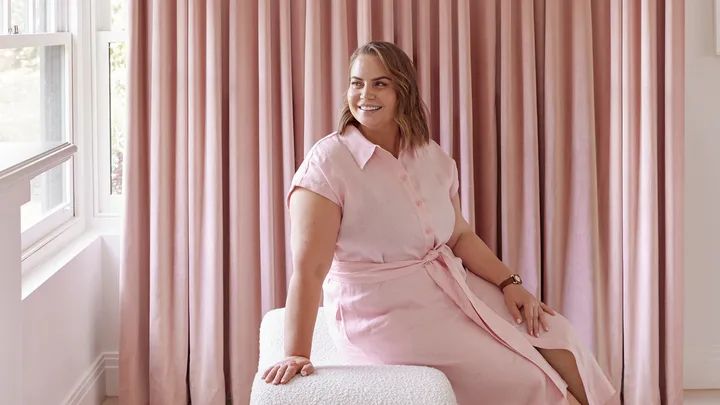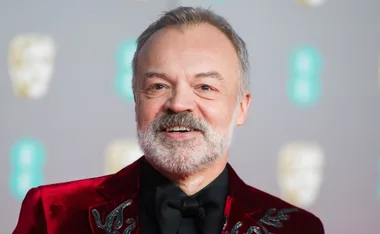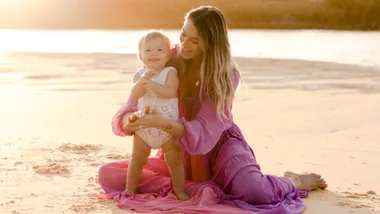As Jelena Dokic starts to prepare for her “happy slam” – the Australian Open in hometown Melbourne – she confesses it’s been an emotional roller-coaster of a year.
The former tennis prodigy, who in the past has said she felt like an outsider, is now winning a burgeoning army of fans as the Nine Network’s star commentator on the world tennis circuit – adored not just by viewers but players too.
Jelena’s authenticity is her crowning glory. She wears her heart proudly on her sleeve and battles negativity with a courageous passion.
And in response, her career is soaring.
The thing is, Jelena really understands what her fellow athletes are going through. She gets it.
Her match commentaries and player interviews display that depth of knowledge underpinned with a grounding of genuine empathy and compassion, which in a world where winners teeter on a pedestal and losers are quickly dismissed is refreshing.
“Even when a player may not be doing well, I still try to look at the positives,” she tells me.
“At the end of the day they’re all out there trying their best. I’ve been there as well. I think it’s important to have that positive energy when you’re commentating.”
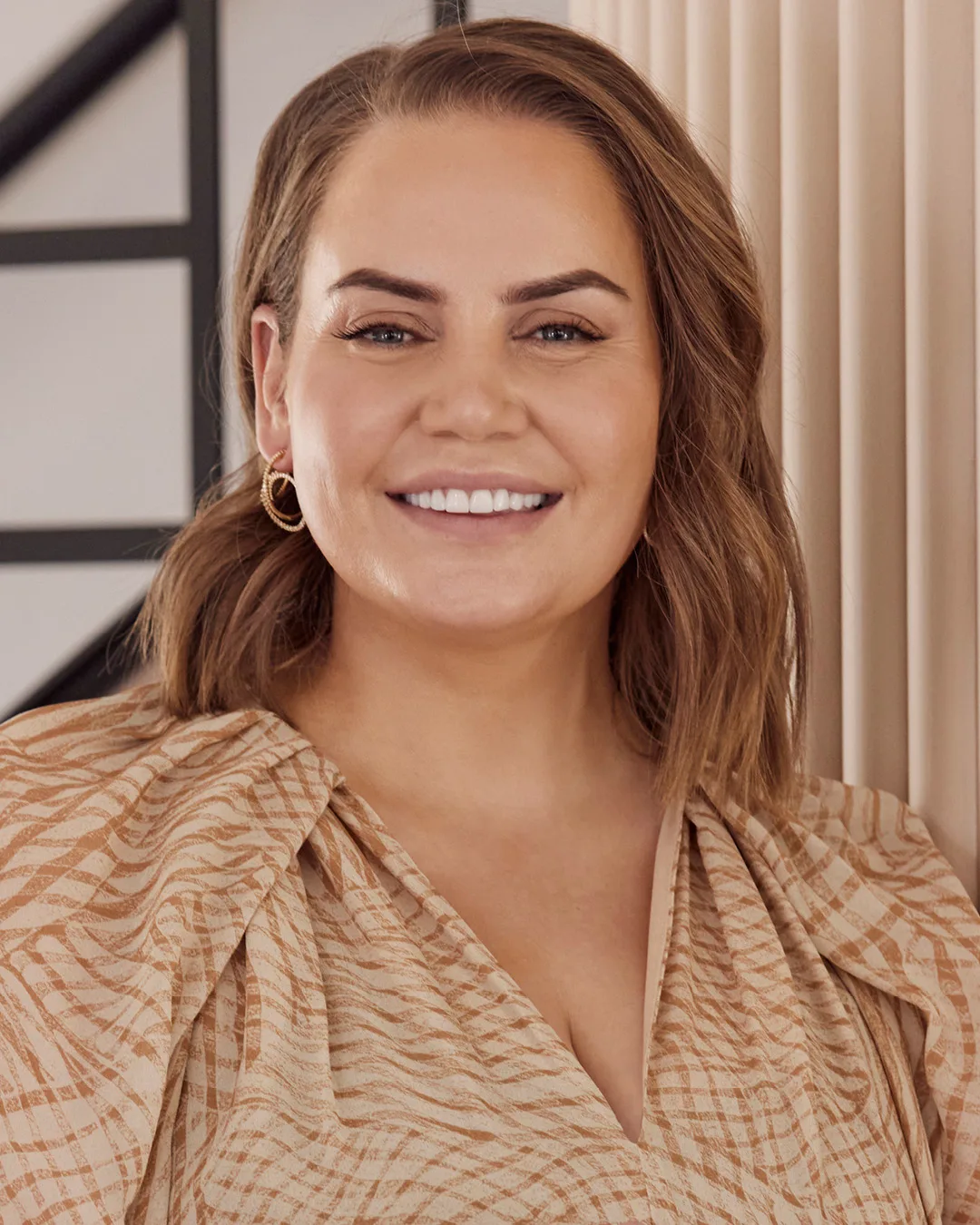
Jelena brings her own personal experience into her sports commentating role.
But behind the scenes Jelena has been grappling her own bouts of depression and sharing that journey with her more than 100,000 Instagram followers.
Splitting up with her boyfriend of more than 18 years – Tin Bikic, the soulmate who carried her through her 20s and 30s – hit her hard and living alone for the first time in her life has been a new journey she didn’t expect to be making as she approaches her 40th birthday in 2023.
When we settle down to chat in a quiet corner of Nine’s Melbourne HQ, Jelena is still reeling from a video that was posted on social media two weeks before.
It horrified the tennis community and took Jelena back to the darkest times of her playing career.
In the footage a 14-year-old Chinese player is seen being assaulted by her coach who is also her father. The graphic footage showed the young girl cowering for cover as she is slapped and kicked.
“As someone who has gone through it, I know what it looks like,” Jelena says, her head in her hands.
“It was in Canada when I was left unconscious and it really reminded me of that, especially the kicking. I felt sick. For two or three days I couldn’t sleep, I was just thinking about this girl because I am so worried about her safety and going forward how traumatised she’s going to be for the rest of her life.”
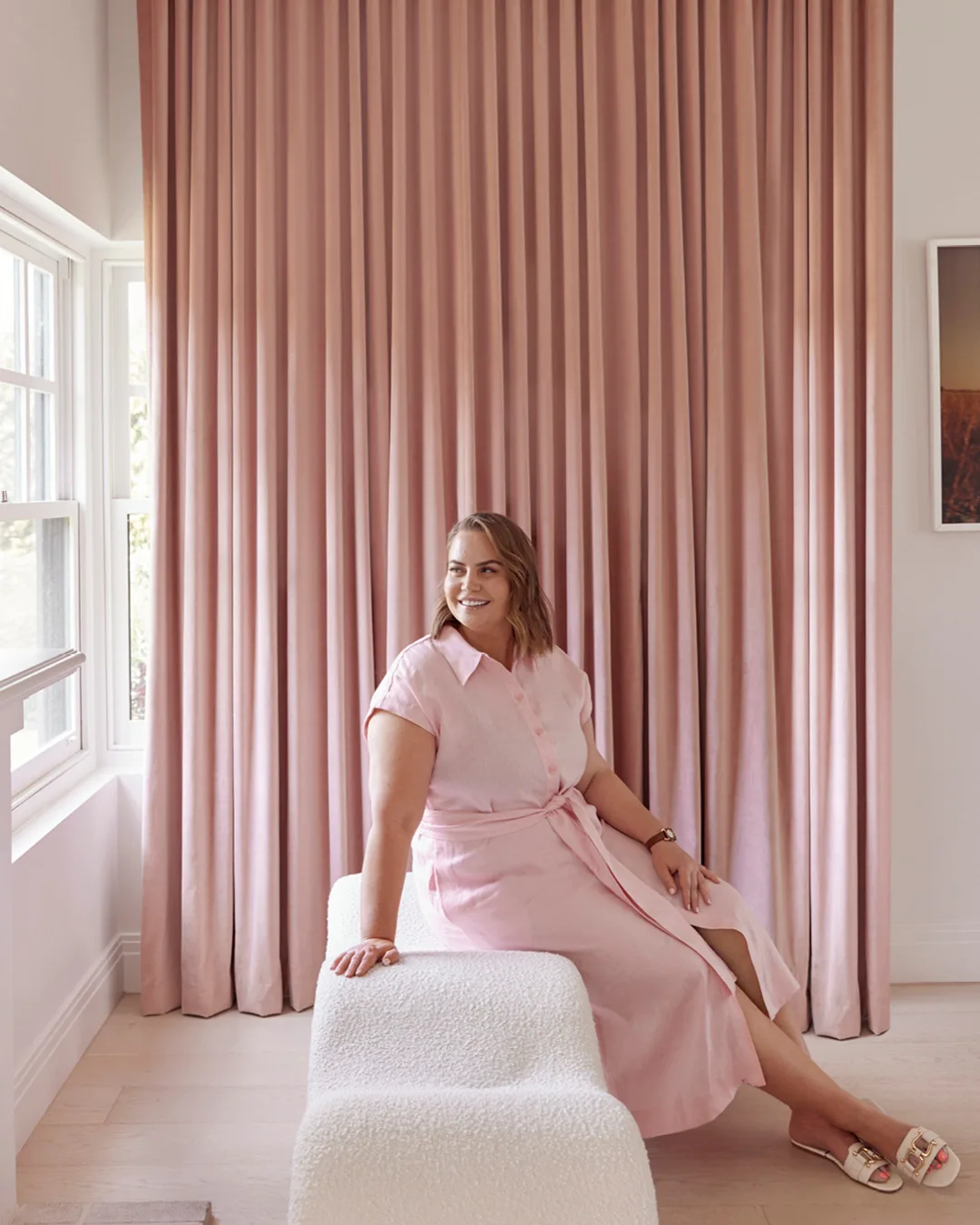
Jelena had to confront her own trauma after watching a video of a young tennis player being abused by her father.
With her own trauma triggered, Jelena was quick to speak up in interviews and on social media about her dad.
“You think this is brutal? It is, but it’s a normal day for a lot of us that have been or are abused, especially as children. Hitting, ear pulling, spitting in our faces, throwing us on the ground, punching and kicking us. Imagine what happens behind closed doors … It’s even worse. I am glad this monster was caught on video, but people are watching this and not doing anything until he started kicking her on the floor,” she opined.
For Jelena this was certainly personal, and she has been rightly frustrated at the lack of response from others inside the tennis community.
“It’s really the first time we’ve been able to see something like that and what happens on a tennis court, and I had this need to speak up about it,” she explains.
“I’ve always said that I’m not going to be the first or the last case, unfortunately. This is always going to happen, but it’s about what we do, how we deal with it. This question will always be there for me: is enough being done to protect kids, especially young girls, who get on the tour, who are so vulnerable?”
While awareness and accountability has improved since Jelena was on the circuit, there is still a great deal of work to do, she says.
Jelena first revealed the decades of vicious abuse she received at the hands of her own dad, Damir Dokic, in her 2017 memoir, Unbreakable.
The day it came out, she says, was a moment of triumph and since then she has gone from strength to strength.
“I got a lot of my confidence and self-esteem back because it is the first thing that goes when you’re in a domestic violence situation and when you’re abused as a child. It’s something that I lacked for a very long time. I was always scared and fearful. I had a lot of weight on my shoulders, and I didn’t realise that until the moment I spoke about it,” she says, her face lighting up at the memory.
Sharing every single part of her life story openly and honestly and braving the consequences was monumental for Jelena and the smiling, caring, vivacious woman I meet today is a testament to the power of that choice.
“It’s definitely changed me,” she muses. “I really feel like a free person now after talking about it, but I also feel so extremely grateful and lucky to be able to help others. A lot of people find so much strength in me sharing my story.”
The book had a powerful impact and was a shock for many.
Finally the world got to see the real Jelena and gain an understanding of what she had been going through.
Before she spoke out the perception was of a steely, tennis machine whose father was an embarrassment with his drunken antics but whose impressive rise to number four in the world more than compensated for her awkward family circumstances.
Those players, their teams and many members of the media who did capture glimpses of what was really going on turned a blind eye.
“My father wasn’t taken seriously, he was a punchline, a joke, but I think a lot of the media knew what he was like because he was often quite aggressive with them. When my book came out some of them apologised, which I really appreciate,” says Jelena quietly.
“There is so much shame and embarrassment and stigma connected with survivors of domestic violence and people struggling with mental health and child abuse, we need to share our stories and other people need to listen to survivors’ stories so that we can educate others. People find strength in you telling your story. It’s the beginning of trying to help someone to find that inspiration or empowerment. I never thought my story would do that.”
In her book, Jelena wonders what compelled her dad to be such a horrific bully, a man who would systematically beat his own daughter who he claimed to love, and five years on she confesses she is no closer to finding the answer.
“I tried to figure it out, I even tried to have a relationship with him later, to get through some of these things, to see if we can work it out. But we are just so different. I don’t have any contact with him. It’s very hard to have a relationship with someone who has no remorse and says he would do it all again.
“I look back at it now and I believe life at the end of the day is a series of sometimes tough events and losses and bad moments. At the time I really had to say, this is the hand I’ve been dealt and try to make the most of it, try and turn it into a positive. Even though it almost did cost me my life, I didn’t want that to define me and I didn’t want that to defeat me.”
Tennis certainly saved Jelena and her family.
Together they had emigrated to Australia from a life of poverty and danger in warring Yugoslavia and the legacy of that experience for Jelena was a powerful survival instinct that paid dividends when faced with her father’s brutal behaviour.
That inner strength is her secret weapon, but she’s well aware that the tentacles of trauma can show themselves at any time.
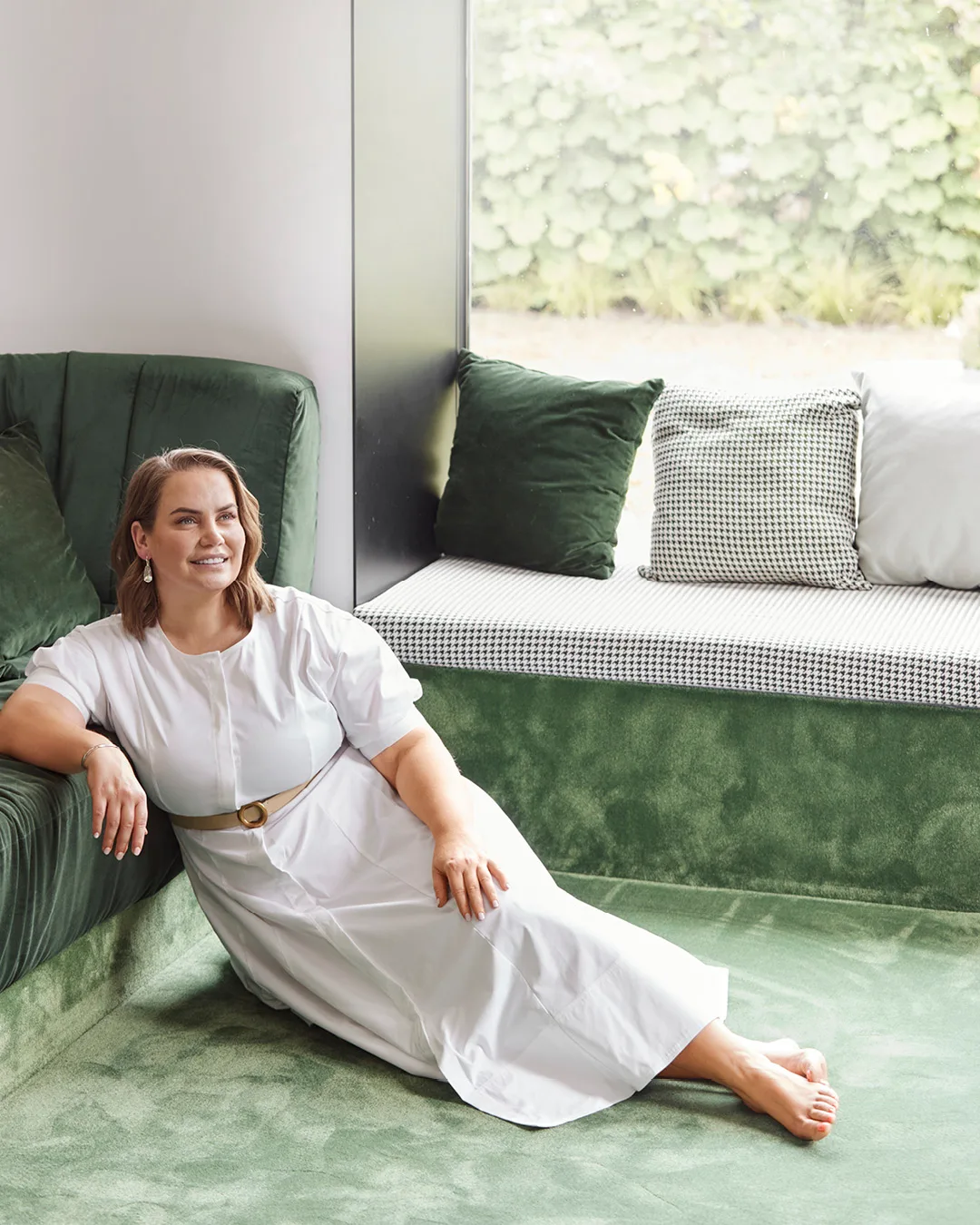
“I look back at it now and I believe life at the end of the day is a series of sometimes tough events and losses and bad moments. At the time I really had to say, this is the hand I’ve been dealt and try to make the most of it, try and turn it into a positive.” Jelena speaking about her own trauma.
Her career today has branched off in a wealth of directions. With which Jelena Dokic’s net worth is also likely soaring – rightly so.
Alongside her tennis commentary, she is a sought-after inspirational speaker raising awareness around the post-traumatic stress suffered by those who face domestic violence and tackling this issue and others faced in her sport – like body shaming – head on.
At the Australian Open last year Jelena was trolled with cruel comments fired at her on social media.
“It was all about my body weight. I didn’t even get upset. I got really frustrated,” she says. “We should be looking at whether people are kind, gracious, compassionate, what they try to do with it. I want to be known for inspiring someone, not what size I am and what my weight is. It’s just mean and rude and it’s the wrong message to send out. You need to embrace who you are.”
And while we’re on the topic of battling critics, another issue that Jelena is passionate about is the conversation around equal prize money for women.
“The Australian Open was the first grand slam to do that and I’m so happy about it,” she notes.
“But when commentators say, ‘shouldn’t women be playing five sets?’, strength has nothing to do with it. The conversation should be, as women, especially young girls, consider for a moment what we go through every month with our periods. Wimbledon has just made a decision that we can wear coloured underpants under our skirts. We have been wearing white forever. I remember, even as a junior, I was so worried. I spent matches sometimes at Wimbledon in juniors more worried about leakage than playing tennis.”
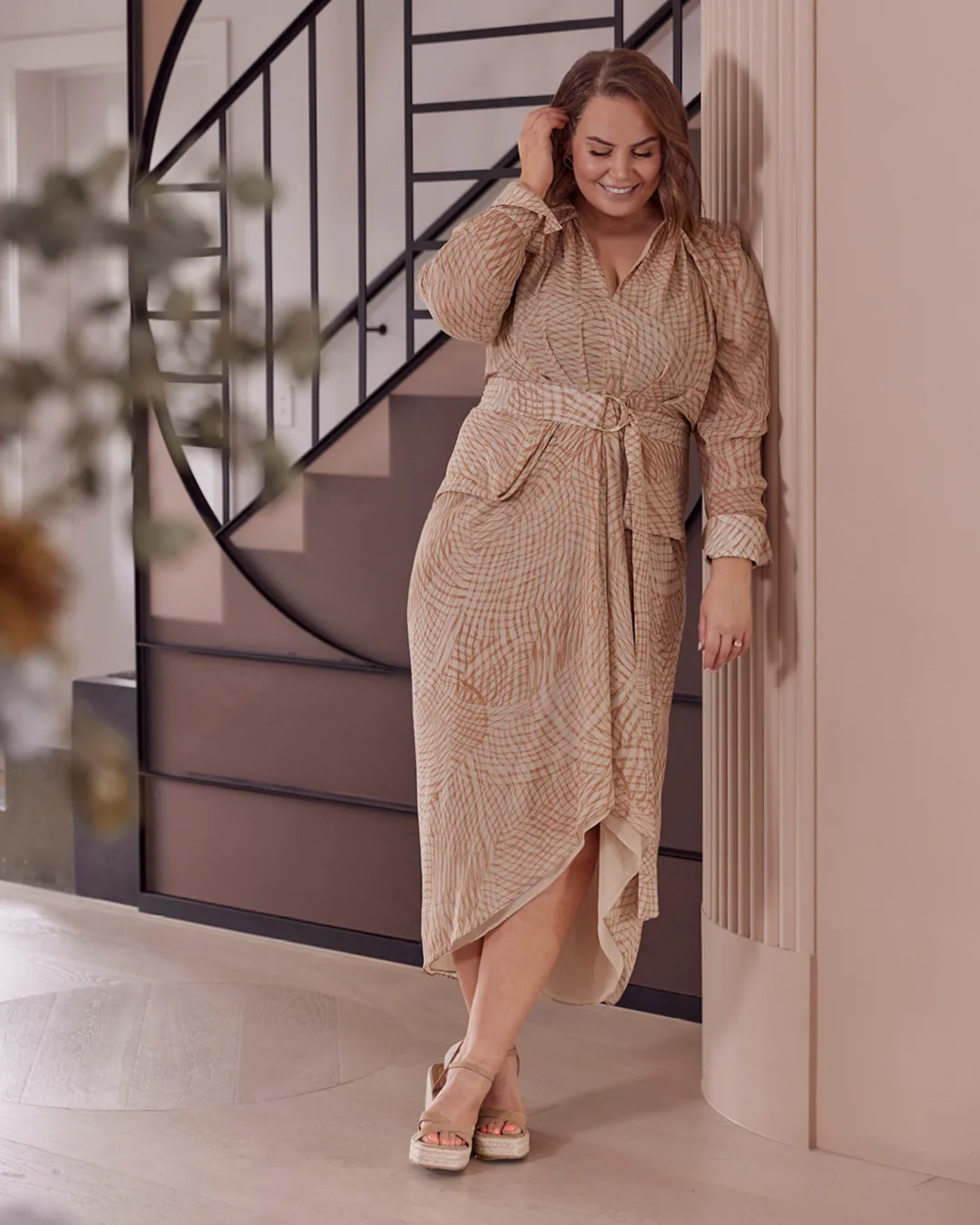
Jelena is also passionate about equal prize money for women in sport.
Jelena is a natural orator, a seeming tower of strength, but in April she found herself swamped with suicidal thoughts following the break-up at the beginning of the year of her long-term relationship with Tin Bikic.
“We didn’t fight, we don’t have any hard feelings, but it was a shock,” says Jelena who’d never imagined a future without Tin by her side.
“We’d been together for a very long time, almost 19 years – since we were 20 – so it’s always tough when something like that comes to an end. I’ll always love him. He’s amazing. He helped me through so much in my life. In my lowest moments he was there and I’m not sure I would be here today if it wasn’t for him,” she says with a gentle sigh.
“He’s one of the kindest people I’ve ever met, with such a good heart. But I think once you end a relationship that’s that long it’s almost like a grieving process, because it ended quite suddenly.”
Jelena threw herself into work, but in April she hit rock bottom and as she had once before in her life, lost the will to go on.
“I had a low moment and definitely it wasn’t easy. I even for a second there felt like I had failed because I was there [having these suicidal thoughts] back in 2006 and I felt like I would never be there again.”
But because she’d been there before, Jelena recognised her own mental health crisis and managed to pull herself out of the mire.
She sought help, took a break, slowed down.
“That was really helpful. I just needed to be my own priority,” she says. “I think the good thing was from my past experiences, I knew exactly what that feeling was and that I needed to stop what I was doing and focus on myself. And as much as it was a low moment, I’m really proud that now six months later, I’m doing so, so well.”
Jelena is close to her only sibling, brother Savo, but he now lives in Europe and it is, she says, her friends who were instrumental in providing crucial support.
“If it wasn’t for them, I would have been very different. I could call them up any time of day or night. There was one friend in particular, a woman, who’s really been there for me. I almost look at her like a mother figure or an older sister. It’s been amazing because I could talk to her about anything and that was a big part of getting through it.”
Jelena also saw her mother, Ljiljana, while holidaying in Croatia.
In the years since Jelena Dokic’s book came out, she has had what she calls “tough conversations” with her mum, questioning why she watched on as her husband abused his daughter.
“We talked it out and we have a good relationship now,” says Jelena who also talked to her mother about the break-up while on holiday.
Going back to her homeland for six weeks was “wonderful”, Jelena tells me.
She travelled alone and soaked up the beauty of the place she was raised in.
“It’s great to go back there. I was there until I was 11, I speak the language, I understand the culture. But Australia is home, always has been, always will be, since the first day I got here. I’m a very proud Australian. Australia is my heart.”
On her return Jelena hit the ground running, planning new projects, working on the tennis circuit and embracing her new life as a single woman.
“At first I didn’t know what that would look like and I was a bit lost, but now I’m good,” she smiles.
“It’s actually made me realise that I’m very strong. I have to be honest, I love to be in a relationship, to love someone and be loved back, but I’ve realised that I can be on my own. I’m going to travel, I’m going to enjoy it, I’m going to spend time with friends, I’m going to try new things and see how I go.
“I think it comes from being really resilient and being a fighter. I’ve always had this belief in me, never to give up, no matter what I was going through. But also I have no problem admitting to how I felt. For a while there when I was battling my mental health I did feel like – ‘oof, where do I go from here? How do I fight? How do I get out of this?’ But there’s always a bit of that optimism in me and I try to pass that on to other people as well. That’s why I like the saying: ‘There’s always a light at the end of a tunnel’. It’s sometimes hard to see but you’ve got to hold on to that, even through the darkest moments.”
Jelena’s eyes are shining as she contemplates the future.
“I’ve really found my happiness and my joy and my happy place. It all comes from sharing my story and speaking up. I think that’s the key to anyone who’s been through anything hard or traumatic. That’s the key to start your healing process and to getting better.”
In September, Jelena has a new book coming out.
“It’s about healing, it’s about trauma, it’s about mental health, it’s about body image and body shaming,” she explains.
“You learn from your mistakes. I feel like I’ve gone to hell and back and now I’m in a great place. I’ve got so much wisdom and experience under my belt and I’m really happy about getting older.”
Is she looking to find love again?
“I hope so one day,” she says with trademark candour.
“I don’t think I’m in that place now. Obviously, you never know what’s around the corner but I’m happy the way it is now. You never know – if we talk in 12 months’ time we’ll see if that’s changed.”
If you’re experiencing domestic violence you can call 1800 RESPECT on 1800 737 732.
